Cats
Famous Cat
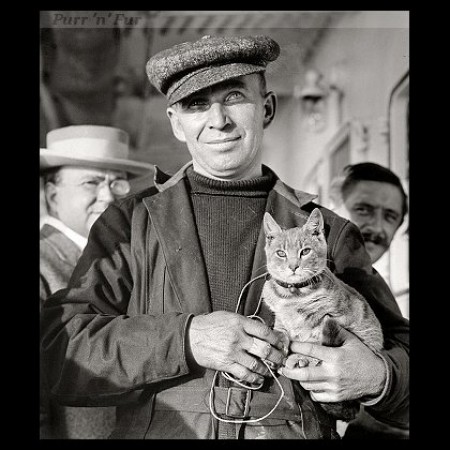
Why was this cat once famous? Hint: it involves a mode of transport.
Take your best guess, then find out after the jump.
More in extended >>
Posted By: Paul - Wed Jun 06, 2012 -
Comments (7)
Category: Celebrities, Cats, 1910s
Lenin’s Cats


"Don't trust anyone who doesn't like cats."
Okay.
But does that imply "Trust everyone who likes cats"...?
Posted By: Paul - Tue Apr 24, 2012 -
Comments (12)
Category: Historical Figure, Cats, 1910s, 1920s, Russia
Cat Mask Synchronized With Facial Muscle Movements
Cutting-edge science stuff:
Posted By: Alex - Fri Feb 24, 2012 -
Comments (6)
Category: Animals, Science, Technology, Cats
Cat Staring Contest

"Staring at Cat Staring at Cat Staring..." by Steve Bishop
(via ignant.de)
Posted By: Alex - Tue Jan 10, 2012 -
Comments (2)
Category: Animals, Art, Cats
Happy New Year’s!
Here's wishing a splendid 2012 for the whole world!
Meanwhile, everyone party like Felix!
Posted By: Paul - Fri Dec 30, 2011 -
Comments (2)
Category: Anthropomorphism, Holidays, Surrealism, Cats, 1920s, Alcohol
Crafting with Cat Hair

Xmas is right around the corner!
Posted By: Paul - Thu Nov 10, 2011 -
Comments (3)
Category: Hobbies and DIY, Books, Cats
Weird Animals - Och Aye The Roo!
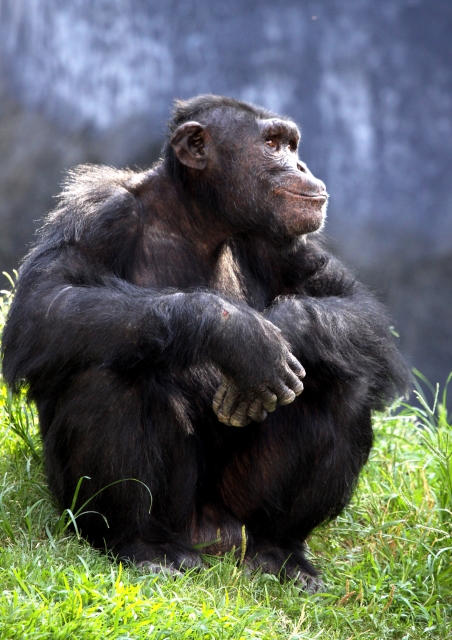
Of course, this won’t be news to one member of Britain’s thriving rod-fishing community, who this week caught a piranha in his local pond (Guardian).
Another place you might not expect to see exotic creatures is on your lunch menu, but that didn’t stop one restaurant owner in Mesa, AZ from putting “lion burgers” on the menu to celebrate soccer’s World Cup. Cameron Selogie of the Il Vinaio makes his “mane course” with genuine lion meat imported from South Africa, earning him the ire of local animal rights groups and several death threats, but not a reprimand from health officials. According to an FDA spokesman serving lion meat is perfectly legal, as long as it’s not roar (Scotsman).
Slightly luckier than the lions, one cat who has fallen on his feet is Oscar, a housecat from the Isle of Jersey in the UK, widely billed as the “bionic cat” after successfully receiving two artificial hind legs to replace the ones he lost in an altercation with a combine harvester (BBC News).
You might think pitting a rodent like mammal against a 12 tonne Triceratops makes for an equally one-sided match up, but evidence emerged recently that our primitive ancestors occasionally feasted upon dinosaurs. Seventy-five million year old “gnaw marks” of a kind characteristic of early mammals, and belonging to a creature not much bigger than a squirrel, have been found on the fossil bones both of Tricerotops and the crocodile-like predator Champsosaurus (LiveScience).
Sadly today the nearest we get to dinosaur flesh is turkey or chicken, but not all birds were prized solely for their meat. The huia bird of New Zealand for example, was once used to make the feathered head-dresses of Maori chiefs, until predation from accidentally introduced species drove it to extinction around 1907. But if the bird has gone its feathers have not, and one recently became the most expensive feather ever when it sold at auction for NZ$8000, i.e. $4000 American (Telegraph).
More in extended >>
Posted By: Dumbfounded - Mon Jun 28, 2010 -
Comments (4)
Category: Aliens, Animals, Dinosaurs and Other Extinct Creatures, Cryptozoology, Food, Overpriced Merchandise, Pets, Cats, Rants, Warnings, Jeremiads, Prophecies and Cassandra-like Figures, Science, Violence, 1980s
Gothic Kittens
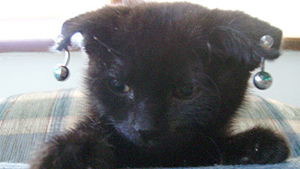
Posted By: Nethie - Wed Feb 03, 2010 -
Comments (12)
Category: Animals, Crime, Cats
Royal Doulton Lucky Cat
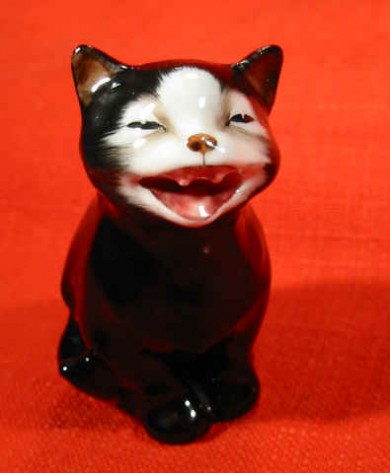
Posted By: Paul - Sat Jan 09, 2010 -
Comments (4)
Category: Horror, Statues, Monuments and Memorials, Cats
Kickin’ It With The Kitties
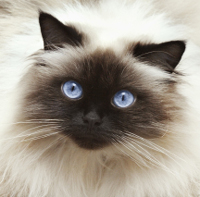
Posted By: Nethie - Thu Dec 10, 2009 -
Comments (8)
Category: Animals, Inebriation and Intoxicants, Cats

| Who We Are |
|---|
| Alex Boese Alex is the creator and curator of the Museum of Hoaxes. He's also the author of various weird, non-fiction, science-themed books such as Elephants on Acid and Psychedelic Apes. Paul Di Filippo Paul has been paid to put weird ideas into fictional form for over thirty years, in his career as a noted science fiction writer. He has recently begun blogging on many curious topics with three fellow writers at The Inferior 4+1. Contact Us |




